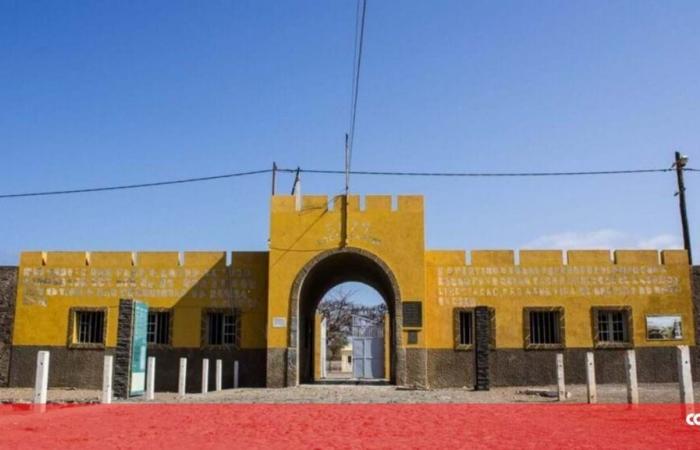
On Wednesday, May 1st, Cape Verde hosts the celebration of the 50th anniversary of the release of political prisoners from the Tarrafal concentration camp, a symbol of the oppression and violence of the Portuguese colonial dictatorship.
The release of those who opposed the regime took place a few days after the fascist regime was overthrown with the revolution of April 25, 1974 in Portugal.
To celebrate 50 years, the Cape Verdean presidency invited and announced the presence of the heads of state of the four countries of origin of political prisoners, which include Angola, Guinea-Bissau and Portugal.
The program aims to be “a milestone in the history of Cape Verde” and “an essential chapter with repercussions on national liberation movements in the former Portuguese colonies in Africa”, he announced.
“Celebrating in the space that now houses the museum is an act of preserving memory and a contribution to educating more recent generations about the horrors of the colonial past”, explained the presidency.
The morning includes the unveiling of a 50th anniversary plaque, interventions by heads of state and a conference on the countryside.
Luís Fonseca, former Cape Verdean ambassador, executive secretary of the Community of Portuguese Speaking Countries (CPLP) between 2004 and 2008, will speak as spokesman for political prisoners at the ceremony marking the 50th anniversary of the liberation of Tarrafal next Wednesday .
After being attacked by PIDE, the regime’s political police, Luis Fonseca was part of the first group of Cape Verdean political prisoners to arrive in Tarrafal (1970-1973).
“Tarrafal is in fact a symbol of Portuguese fascism”, of the “denial of rights”, he said, in an interview with Lusa, regarding the 50th anniversary of liberation.
“There is a duty of memory towards the fighters who gave their lives for freedom”, meaning that the site “should not be forgotten by generations, because it represents the struggle of the people of four countries”.
After the more institutional moments, on Wednesday afternoon there will be a show with artists from the four countries: Mário Lúcio (Cape Verde), Teresa Salgueiro (Portugal), Paulo Flores (Angola) and Karina Gomes (Guinea Bissau).
The celebration of May 1st is joined by other initiatives announced in March by the Cape Verdean Ministry of Culture and Portuguese Cooperation, which culminate in an international symposium scheduled for May 9th.
The former Tarrafal Concentration Camp was built in 1936 and received the first 152 political prisoners on October 29 of the same year, having operated until 1956, imprisoning Portuguese anti-fascists.
It reopened in 1962, under the name “Campo de Trabalho de Chão Bom”, intended to imprison and “re-educate” anti-colonialists from Angola, Guinea-Bissau and Cape Verde.
In total, more than 500 people were imprisoned in the “slow death camp”: 340 anti-fascists and 230 anti-colonialists.
On an evocative tombstone erected inside the field, the names of 36 people who died there are inscribed: 32 Portuguese, two Guineans and two Angolans.
After its deactivation, the complex functioned as a military instruction center, since 2000 it has housed the Resistance Museum, in 2004 it was classified as National Cultural Heritage and is included in Cape Verde’s indicative list of heritage sites of the United Nations Educational and Scientific Organization. and Culture (UNESCO).
The entrance to the field is located next to the avenue and cycle path entering Tarrafal de Santiago, a municipality with 17 thousand inhabitants on the largest island of Cape Verde, which, today, is also synonymous with one of the most beautiful beaches on the island of Santiago , concentrating some hotel units.
Tarrafal is on the northwestern tip, opposite the capital, Praia, about 70 kilometers away, a two-hour drive along the roads that run around the island, either through the interior or along the east coast.
Tags: Cape Verde brings heads state celebrate years liberation Tarrafal Africa
--




